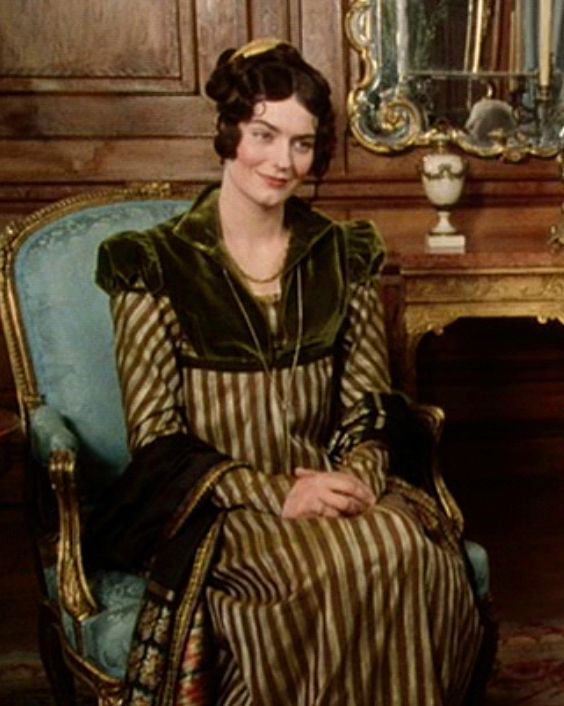Friday
Ellie Eaton at Literary Hub, https://lithub.com/who-are-the-mean-girls-in-literature/
who says she still bears scars from mean girl encounters from her prep school days, has compiled a list of some of her favorite literary mean girls. I recognize two of them and have added several of my favorites.
I’ve found it useful, in thinking of examples, to distinguish those mean girls who occupy privileged positions atop the social pyramid from those who are trying to scale its heights. Sense and Sensibility’s Lucy Steele can be excused, or at least understood, in a way that the execrable Fanny Dashwood cannot.
I’m sure I’ve left out some obvious candidates so please feel free to send in your favorites.
Starting first with Eaton’s list, she is spot on with Caroline Bingley from Pride and Prejudice and Rebecca from Daphne de Maurier’s novel of that name. About Bingley she writes,
Snobbish, meddling, and two-faced, Caroline Bingley is the original mean girl. In Austen’s beloved novel of manners, when Caroline—an elegant, well-educated woman with a fortune of twenty thousand pounds—finds herself in danger of being sidelined by Elizabeth Bennett, she does what any villainess would do, freeze her out. Patronizingly cordial to Elizabeth in person, as soon as the eldest Bennett’s back is turned Caroline sticks the knife in. “She had no conversation, no style, no taste, no beauty,” she snaps, the 19th Century equivalent of trash-talking. Though Caroline’s snubbing of the Bennett sisters ultimately fails to keep Elizabeth and Darcy apart you have to admire her back-stabbing ambition.
I note that maybe the cattiest line in an Austen novel refers to Caroline. At the end of Pride and Prejudice, after Elizabeth has achieved the ultimate revenge for all of Bingley’s slights, Austen makes an observation that refers back to when Caroline was lobbying her brother to find a home close to Pemberley:
The darling wish of his sisters was then gratified; he bought an estate in a neighbouring county to Derbyshire, and Jane and Elizabeth, in addition to every other source of happiness, were within thirty miles of each other.
Not only does Caroline fail to land Darcy, but she’ll have to watch her rival enjoy the spoils of her victory.
Even worse that Caroline Bingley, however, has got to be Lady Catherine de Bourgh.
–Rebecca from Rebecca
Eaton says the following about Rebecca:
In du Maurier’s gothic classic a young bride marries a widower and is transported to a Cornish mansion where she attempts to fill the shoes of her glamorous predecessor. Even from the grave the eponymous Rebecca manages to outshine du Maurier’s meek narrator (only ever referred to as the second Mrs. Maxim de Winter). Hedonistic, irreverent, licentious, Rebecca’s ghostly presence snakes menacingly around the novel, slowly tightening her grip.
–Fanny Dashwood from Sense and Sensibility
I find Fanny Dashwood far worse than Caroline Bingley because she does more active harm (although Caroline uses subterfuge to separate Jane from her brother). Fanny pays for her villainy, however (even though she doesn’t know it) by having to tolerate constantly the whims of her mother (Mrs. Ferrars) while engaging in incessant battles with her sister-in-law Lucy Steele. All this while Elinor and Marianne live blissful lives with two good men.
Oh yes, and Mrs. Ferrars competes with Lady Catherine de Bourgh as the worst of the elderly mean girls.
–Mrs. Elton from Emma
Mrs. Elton is a social-climbing mean girl although not one that does much harm. She gets under Emma’s skin in part because she is her double. This reveals that Emma herself has mean girl potential, although in the end she rises above it. Far meaner in Emma is a woman we never meet: Mrs. Churchill, who thankfully dies, thereby removing herself as an obstacle to Frank and Jane’s marriage.
–Isabel Thorpe from Northanger Abbey
Isabel is a self-absorbed social climber but, other than jilting Catherine’s brother (thank goodness), doesn’t do active harm. She’s useful to Catherine until Catherine finds more a more substantive female companion in Elinor Tilney.
–Becky Sharp from Vanity Fair
Becky is such a naked social climber that it’s hard to condemn her too much. Also, at the end she does the heroine—who’s a bit of a drip—a good turn.
–Blanche Ingram in Jane Eyre
Anyone who complains about governesses in the presence of a governess fits this category. Blanche is an empty fraud and Rochester recognizes her as such.
–Cordelia from Margaret Atwood’s Cat’s Eye
Cordelia is the quintessential bully. She is so mean that, upon the novel’s publication, some feminists that had lionized Handmaid’s Tale weren’t sure that the author was still one of them. More interested in truth than in ideology, Atwood cautioned us that women have dark sides no less than men. Cordelia’s threat level diminishes as the narrator grows up and sees her as the insecure lower-class female that she is.
–Zenia from Atwood’s Robber Bride
It’s hard to think of a better mean girl since Zenia, after befriending each of three protagonists, steals their male friends, appearing to do so simply because she can. In Zenia’s defense, however, she does each of the three women a favor. Each of them is a bit of a doormat and Zenia prompts them to develop a spine and assert themselves. Zenia also brings them together so that, in opposition to her, they develop female solidarity. In the end, each needs to tap into her inner Zenia, and when Zenia mysteriously disappears at novel’s end, it’s as though she has served her purpose and is no longer needed.
In writing about literary mean girls, it’s apparent that they generally serve as important foils to the heroine . Sometimes they are there just to highlight the heroine’s virtues, but in the best cases they point to areas where the heroine needs work.
